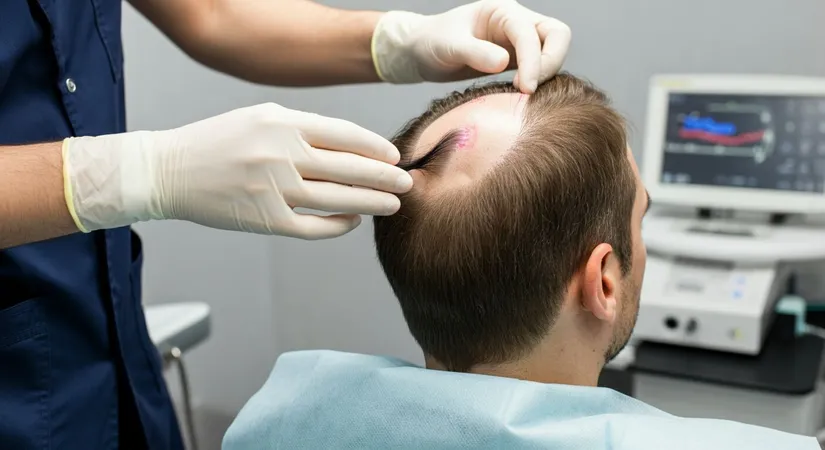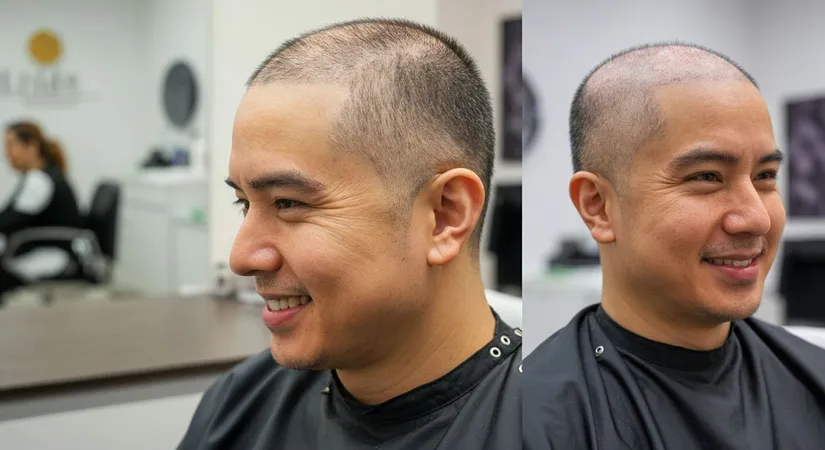Discover the Best Hair Loss Treatment Solutions
Discover effective hair loss treatments and regain your confidence with our comprehensive guide.
Hair loss is a prevalent concern affecting millions worldwide. While some individuals embrace their changing appearance, others seek effective solutions to regain their confidence. With modern advances in hair treatments, there are numerous options available to tackle hair loss and promote regrowth. This article delves into the causes of hair loss, explores various treatment solutions, and offers insights into natural methods to combat this condition.
Understanding What Causes Hair Loss
Factors Contributing to Hair Loss
Hair loss is a complex issue influenced by various factors. Genetics play a significant role, often determining the likelihood of experiencing hair thinning or baldness. For instance, androgenetic alopecia, commonly known as male or female pattern baldness, is hereditary. Hormonal changes, such as those during menopause or pregnancy, can also trigger hair loss. Additionally, thyroid disorders can disrupt the hair growth cycle, leading to thinning.
- Genetic predisposition, such as androgenetic alopecia, is a primary cause.
- Hormonal fluctuations during menopause or pregnancy impact hair health.
- Thyroid imbalances can disrupt normal hair growth cycles.
Beyond genetics and hormones, lifestyle factors significantly affect hair health. Nutritional deficiencies, particularly in iron, zinc, and vitamins, can weaken hair strands, making them prone to breakage. Stress is another critical factor, as it can lead to conditions like telogen effluvium, where hair prematurely enters the shedding phase. Understanding these elements is crucial for selecting the right hair loss treatment.
Identifying and Addressing Hair Loss Causes
- Consult a healthcare professional to identify underlying causes.
- Adopt a balanced diet rich in essential nutrients for hair health.
- Implement stress management techniques to reduce hair loss triggers.
Addressing hair loss effectively requires a comprehensive approach. Consulting a healthcare professional can help identify specific causes, such as hormonal imbalances or nutritional deficiencies. A balanced diet, rich in essential nutrients like iron and vitamins, supports hair health. Additionally, stress management techniques, such as meditation or exercise, can mitigate stress-induced hair loss. By understanding and addressing these factors, individuals can take proactive steps to maintain healthy hair and prevent further thinning.

Exploring Effective Hair Restoration Solutions
Innovative Techniques in Hair Transplantation
Hair restoration has advanced significantly with techniques like DHI (Direct Hair Implantation) and FUE (Follicular Unit Extraction). These methods are less invasive, offering quicker recovery and natural-looking results. For example, DHI allows for precise placement of hair follicles, enhancing density and alignment. FUE, on the other hand, involves extracting individual follicles, minimizing scarring and promoting a natural appearance.
- DHI provides precise follicle placement for enhanced density.
- FUE minimizes scarring with individual follicle extraction.
- Both techniques offer quicker recovery times.
These techniques are offered by leading clinics like estethica, known for their innovative approaches. By choosing the right method, individuals can achieve effective hair restoration tailored to their needs.
Steps to Achieve Optimal Hair Restoration
- Consult with a specialist to determine the most suitable technique.
- Undergo a thorough scalp assessment to plan the procedure.
- Follow post-procedure care instructions for optimal results.
Achieving optimal hair restoration involves several key steps. Initially, consulting with a specialist helps determine the most suitable technique based on individual needs. A thorough scalp assessment is crucial for planning the procedure effectively. Post-procedure care, including proper scalp hygiene and avoiding strenuous activities, ensures the best possible outcomes. By following these steps, individuals can enhance their hair restoration journey and achieve satisfying results.

How to Stop Hair Loss Naturally: Tips and Tricks
Nutritional Strategies for Hair Health
Addressing hair loss naturally involves several strategies, from diet and supplements to lifestyle adjustments. Maintaining a balanced diet rich in vitamins and minerals is fundamental. Incorporating foods high in vitamins A, C, D, and E, zinc, iron, and omega fatty acids can significantly benefit hair health. For example, spinach is rich in iron and vitamin C, which are essential for hair growth. Nuts and seeds provide omega fatty acids, promoting scalp health. Additionally, carrots, rich in vitamin A, support the production of sebum, a natural conditioner for the scalp.
- Spinach: High in iron and vitamin C for hair growth.
- Nuts and seeds: Provide omega fatty acids for scalp health.
- Carrots: Rich in vitamin A, supporting sebum production.
These dietary choices not only enhance hair health but also contribute to overall well-being. By focusing on nutrient-rich foods, individuals can naturally support their hair's vitality and reduce the risk of hair loss.
Lifestyle Adjustments to Minimize Hair Loss
Beyond diet, lifestyle changes play a crucial role in preventing hair loss. Regular scalp massages can improve blood circulation, promoting hair growth. Using gentle hair care products minimizes damage to hair strands, while reducing heat styling prevents breakage. For instance, opting for air-drying instead of blow-drying reduces heat exposure. Additionally, stress management techniques, such as yoga or meditation, can alleviate stress-induced hair loss.
- Incorporate regular scalp massages to boost circulation.
- Choose gentle hair care products to prevent damage.
- Adopt stress management techniques to reduce hair loss triggers.
These lifestyle adjustments, combined with a nutritious diet, create a holistic approach to maintaining healthy hair. By integrating these practices into daily routines, individuals can effectively combat hair loss and promote hair regrowth naturally.

The Impact of Stress on Hair Loss: What You Need to Know
Understanding Stress-Induced Hair Loss
Stress is a powerful trigger for hair loss, often leading to conditions like telogen effluvium. This occurs when stress causes hair follicles to enter a resting phase prematurely, resulting in noticeable shedding. For instance, individuals experiencing significant life changes, such as a job loss or a major move, may notice increased hair loss due to heightened stress levels. Recognizing the connection between stress and hair loss is crucial for effective management.
- Telogen effluvium: Stress-induced condition causing hair follicles to rest.
- Life changes: Events like job loss can trigger stress-related hair loss.
- Stress management: Essential for reducing hair loss triggers.
Addressing stress effectively can mitigate its impact on hair health. By understanding how stress affects hair growth, individuals can take proactive steps to manage stress and support hair regrowth.
Strategies for Managing Stress and Supporting Hair Health
Implementing stress management techniques is vital for maintaining hair health. Mindfulness practices, such as meditation and yoga, can significantly reduce stress levels. Engaging in regular physical activities, like jogging or swimming, also helps alleviate stress. Ensuring adequate sleep is another crucial factor, as it allows the body to recover and reduces stress-induced hair loss.
- Practice mindfulness: Techniques like meditation reduce stress.
- Engage in physical activities: Exercise helps alleviate stress.
- Ensure adequate sleep: Essential for recovery and stress reduction.
These strategies not only help manage stress but also promote overall well-being. By incorporating these practices into daily routines, individuals can create a supportive environment for hair health, reducing the risk of stress-induced hair loss.
Innovative Hair Restoration Techniques
Natural Hair Loss Prevention and Care
Frequently Asked Questions
What causes hair loss and how can it be addressed?
How do DHI and FUE hair transplant techniques differ?
Can stress cause hair loss, and how can it be managed?
What are some natural methods to stop hair loss?
What role does nutrition play in preventing hair loss?
Discover the Path to 'Healthy Beauty' with estethica! Contact us today for your free consultation and experience the expertise of our award-winning team.
📞 Call Now for Your Free Consultation